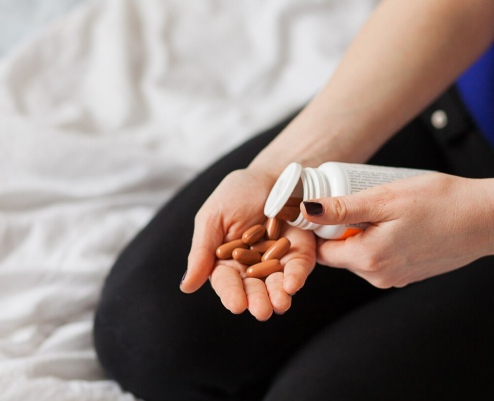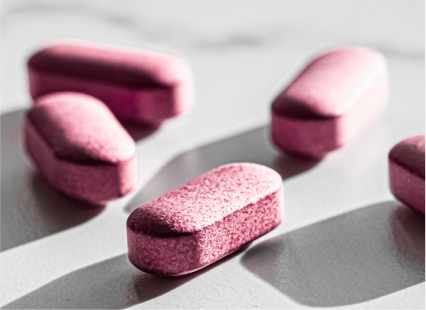When someone goes through a traumatic event, they might start suffering from post-traumatic stress disorder, or PTSD for short. They often deal with intrusive thoughts, nightmares, and high anxiety that can make daily life really hard. Many look for temporary relief and turn to alcohol to manage their feelings. This often creates a harmful cycle where alcohol use makes PTSD symptoms worse. This then leads to more drinking and more problems.
Our experts at We Level Up Lake Worth, FL treatment center can help you understand the relationship between PTSD and alcohol, recognize signs, and get the right help for those who need it.

Skip to:
What is PTSD?
PTSD is a mental health condition that happens after experiencing or witnessing a traumatic event. These events might involve serious injury, violence, or situations where one’s life is threatened. PTSD can affect anyone, regardless of age or background.
Common causes of PTSD include:
- Military combat
- Natural disasters
- Serious accidents
- Violent assault
- Childhood trauma
Symptoms of PTSD
People with PTSD might:
- Have intrusive thoughts such as nightmares, flashbacks, and distressing memories
- Have through sleeping trouble
- Avoid places, people, and activities connected to their trauma
- Feel hopeless and think negatively about themselves and others
- Get startled and angry easily and feel tense
Prevalence of PTSD
You might surprised to hear how prevalent PTSD is. About 6% of the U.S. population will experience PTSD at some point in their lives. Many people with PTSD will recover and will no longer meet the criteria for diagnosis after treatment. So, this statistic includes people who have had PTSD before, even if their symptoms have gone away.
The issue becomes even more prominent in a state like Florida, the state with the 3rd highest concentration of Veterans in the country and a home to 1.5 million military Veterans.

The Connection Between PTSD and Alcohol Abuse
In a study with veterans from Iraq and Afghanistan, researchers found that 34.2% of men and 20.1% of women diagnosed with PTSD at some point in their lives also had an alcohol use disorder.
How can we explain this?
Very often, people who are trying to deal with their trauma drink alcohol as a form of self-medication. People see that drinking alcohol brings them a feeling of relief. Under the influence of alcohol, they take a break from reality and their thoughts. However, the relief they get is only temporary.
PTSD and alcohol create a cycle of dependence. How come? The pleasant feelings of indifference or even joy that alcohol brings them vanish over time. This happens because they become tolerant of alcohol, which means that they need larger amounts of alcohol to get the desired feelings. As a consequence, they drink more and now their PTSD symptoms become even worse.
Alcohol abuse can further numb emotions and make it more difficult to process the trauma effectively.

Get Your Life Back
Find Hope & Recovery. Get Safe Comfortable Detox, Addiction Rehab & Dual Diagnosis High-Quality Care.
Hotline (855) 459-2880Signs and Symptoms of PTSD and Alcoholism
How to know whether someone is struggling with using alcohol and PTSD? There are signs you should know about. Let’s explore:
- Symptoms of PTSD
- Symptoms of alcohol abuse
- Signs of co-occurring PTSD and alcoholism
Symptoms of PTSD
People with PTSD often have intrusive thoughts, such as flashbacks, nightmares, and distressing memories of the traumatic event. Also, they might avoid places people, or activities that remind them of the trauma and refuse to talk to people about it.
They might feel hopeless, and think negatively about themselves or others. In addition, they might have problems with memory related to the traumatic event. Lack of interest in activities once enjoyed is another major sign of PTSD.
They show changes in physical and emotional reactions, too. For instance, they are easily startled and always on guard for danger. They have trouble sleeping and cannot concentrate on their tasks. You might see them outburst angrily, as well.
Symptoms of Alcohol Abuse
A person with alcoholism usually has slurred speech and poor coordination. Tremors or shaking are also signs of alcohol use disorder.
And how do they behave? Obviously, they drink a lot. But also, they are not able to stop or even decrease the amount, even if they know they should. Unfortunately, all this leads to neglecting responsibilities. As a result, they become unsuccessful at work or school and cause trouble in their home.
There are psychological signs, as well. When they need to deal with an unpleasant thing, they have strong cravings to drink. If they don’t, they get more anxious, even nauseous. Furthermore, they might not be able to sleep.
Signs of Co-Occurring PTSD and Alcoholism
When PTSD and alcohol abuse occur together, certain signs may indicate the presence of both conditions.
- Intensified PTSD symptoms: These include more frequent flashbacks and nightmares. Avoidance behaviors worsen as well and they become more hypervigilant.
- Escalation of alcohol use: They drink more to cope with the intensifying PTSD symptoms. This increases their tolerance and results in dependence on alcohol eventually.
- Interference with daily life: People with PTSD and alcoholism experience severe disruptions in their daily routines. Often, they withdraw from social interactions and relationships.
- Emotional instability: Their mood switches very often and it is unpredictable. Their anxiety might tighten and they even go through panic attacks.
- Health complications: Excessive drinking and stress lead to physical health issues. Mental health might also decline when PTSD and alcohol abuse combine.

The Impact of PTSD and Alcoholism on Individuals and Families
There are physical, mental, and social consequences of PTSD and alcoholism. Physically, chronic illnesses like liver disease and weakened immunity arise alongside sleep disturbances and fatigue. Mentally, PTSD symptoms worsen, coupled with cognitive impairment and increased suicidal risks. Socially, relationships strain, leading to isolation and employment issues.
Family support holds great importance in treating PTSD and alcohol abuse. Family can help during alcohol addiction recovery and provide a sense of stability and emotional reassurance. This helps the individual feel understood and less alone. Family members can assist with daily tasks and responsibilities, reducing the burden on the individual and allowing them to focus on recovery. They can also help manage treatment schedules, attend therapy sessions, and monitor medication adherence. Also, a safe and supportive home environment can reduce stress and triggers that may lead to alcohol use.
Treatment Options for PTSD and Alcoholism
First, a person needs to stop using alcohol. Our alcohol detox in Lake Worth, FL, center will make sure you are safe when you quit drinking. We will monitor your health and help you manage the withdrawal symptoms during the process. However, this doesn’t mean a person has solved their issue. We need to address the underlying issues and address all the aspects of their health. We do this with dual diagnosis treatment. Here are the reasons:
- Integrated care: Addresses both PTSD and alcohol dependence together, rather than treating them separately. This integrated approach ensures that the treatment plan considers how each condition affects the other.
- Comprehensive assessment: A thorough assessment can identify the specific needs and challenges of the individual, leading to a personalized treatment plan that addresses both disorders.
- Coordinated therapies: Therapies like CBT and EMDR can be adapted to address both trauma-related symptoms and alcohol dependence. Coordinated treatment helps reduce symptoms more effectively.
- Medication management: Medications for PTSD and alcohol dependence can be carefully managed to avoid interactions and optimize their effectiveness.
- Support systems: Dual diagnosis programs often include support for families and caregivers, helping them understand both conditions and how to provide the best support.
- Relapse prevention: Integrated treatment focuses on preventing relapse by addressing the root causes of both PTSD and alcohol use, teaching coping strategies and providing ongoing support.

How to Help Someone with PTSD and Alcoholism
What causes PTSD? Why do people who suffer from it often have a drinking problem? How long does alcohol stay in your system? Start with finding answers to these questions to educate yourself. Get familiar with the reasons and nature of PTSD and alcoholism. It will help you provide better support, and be patient and understanding. You will acknowledge their pain and reassure them that they are not alone.
Suggest and participate in healthy activities such as exercise, hobbies, or mindfulness practices. These can help reduce stress and improve their mood. Reduce exposure to triggers by creating a calm and supportive home environment. Avoid situations that may lead to stress or drinking.
Avoid enabling. Don’t support their alcohol use by providing alcohol or ignoring their drinking behavior. Encourage them to seek help instead. Seek professional treatment. Encourage them to seek treatment from professionals who specialize in dual diagnosis. Offer to help them find a suitable treatment program, and to go with them to therapy sessions or medical appointments for support and encouragement. Help them stick to their treatment plan, including taking prescribed medications, attending therapy sessions, and participating in support groups. Don’t hesitate to contact us for more information and support.
Help Your Loved Build a Better Life
When looking for relief from severe PTSD symptoms, your loved one might turn to substance abuse. Alcohol is one of the most popular choices. As they get their temporary relief and repeat this behavior, they often end up developing yet another problem: alcoholism. If you recognize that your loved one is struggling with PTSD and alcohol abuse, be by their side and encourage them to get professional help. The expert team at our alcohol rehab center in Florida will help your loved one quit drinking and deal with their PTSD symptoms in a way that leads to a healthy, happy life.
Start a New Life
Begin with a free call to an addiction & behavioral health treatment advisor. Learn more about our dual-diagnosis programs. The We Level Up treatment center network delivers recovery programs that vary by each treatment facility. Call to learn more.
- Personalized Care
- Caring Accountable Staff
- World-class Amenities
- Licensed & Accredited
- Renowned w/ 100s 5-Star Reviews
We’ll Call You
Sources:
floridavets.org. (n.d.). Florida Department of Veterans’ Affairs | Connecting veterans to federal and state benefits they have earned. [online] Available at: https://floridavets.org/mental-health-and-substance-abuse/.
National Center for PTSD (2023). How Common Is PTSD in Adults? [online] U.S. Department of Veteran Affairs. Available at: https://www.ptsd.va.gov/understand/common/common_adults.asp.
US Department of Veteran Affairs (2014). Treatment of co-occurring PTSD and substance use disorder in VA – PTSD: National center for PTSD. [online] Va.gov. Available at: https://www.ptsd.va.gov/professional/treat/cooccurring/tx_sud_va.asp.





